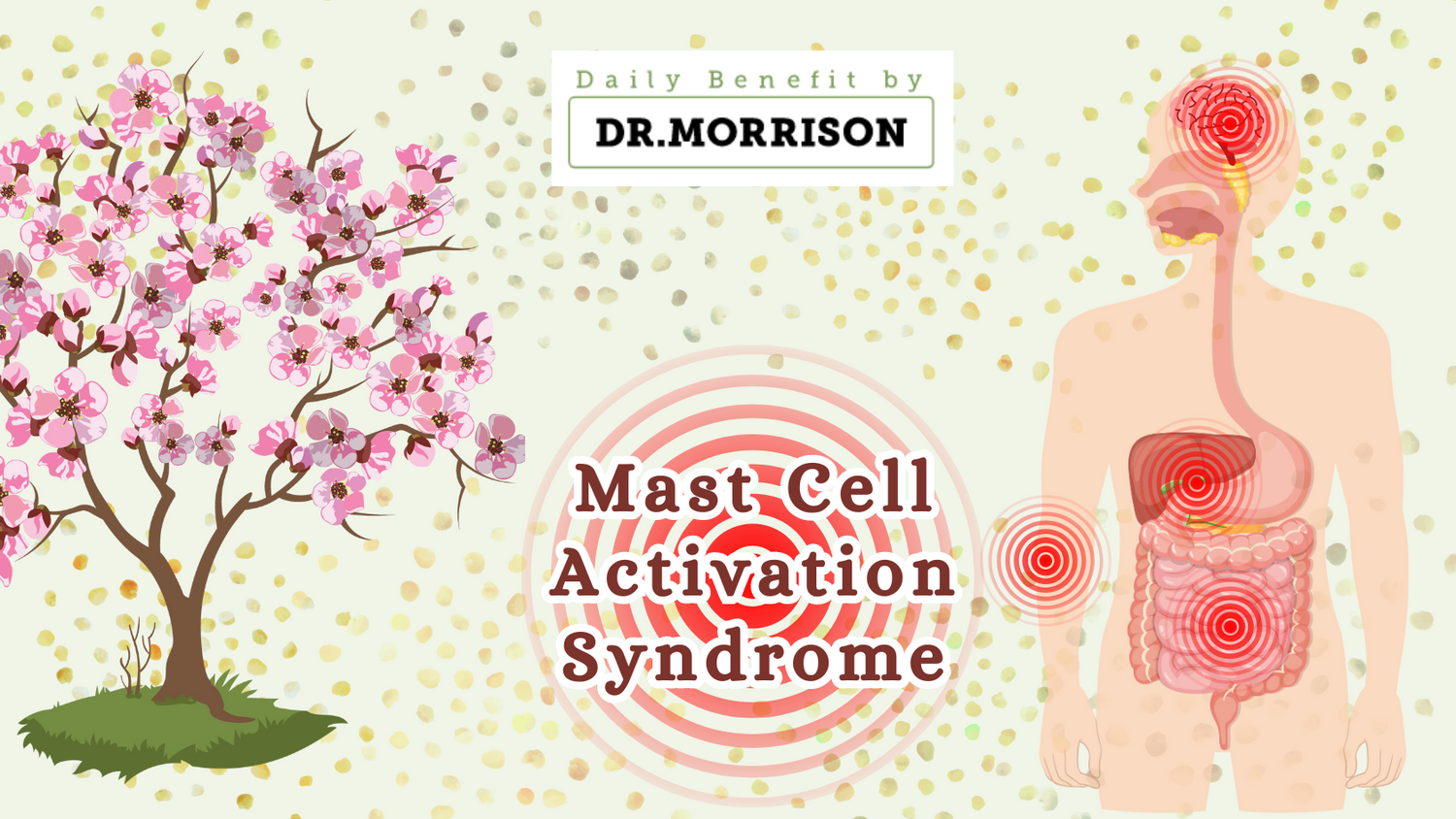It’s allergy season, so at TMC we’re focused on how to keep your histamine down and your mast cells in check. Earlier this month, we talked about how allergy symptoms are caused by mast cells that release the inflammatory compound histamine when the immune system becomes hypersensitive to relatively harmless environmental exposures, like tree, grass and weed pollen. But allergies aren’t the only problem caused by overactive mast cells.
Mast cell activation syndrome (MCAS) is when mast cells become chronically aggravated, releasing histamine and causing inflammation without allergens present. Unlike allergies which come and go with changes in the environment, MCAS can persist incessantly. MCAS often results from a chronic infection – including parasites, bacteria, or Lyme disease – or environmental toxins stored in the body such as mold toxins. Dr. Morrison has taken a great interest in this topic over the last few years since seeing more and more patient’s refractory to previously successful treatments. He’s learned from his patients and from leaders in the field.
Symptoms of MCAS include:
- Chemical intolerances
- Brain fog and headaches or migraines
- Flushing red in the face and chest
- Skin rashes or hives that come and go
- Itchiness and burning especially in ears, eyes, nose, throat, rectum, genitals
- Feeling as though you’ve been sick forever, having symptoms that come and go
- Allergies and asthma that are difficult to control
- Poor wound healing and easy bruising
- Overreaction to insect bites and bee stings
MCAS is a difficult condition to diagnose, since the symptoms are diverse, and labs are not always reliable. Blood histamine and tryptase tests can help, but healthy levels vary person to person and day to day, so a “normal” test doesn’t mean you don’t have MCAS.1 People are often told these symptoms are all in their head, but at TMC we know MCAS is very real!
The strategies in our allergy newsletter are a strong foundation for helping to stabilize mast cells and reduce your symptoms. But MCAS can be a challenging condition, and more support is often needed. Here are some of our top tips:
- Address underlying chronic infections and toxicity with a functional or integrative practitioner. Getting to the root will help support the deepest healing and most lasting health. Call us to schedule an appointment with any of our expert clinicians!
- Consider a low histamine diet. Histamine is naturally found in many foods. Avoiding these can help to reduce the histamine load in the body and make space for healing the immune system. This is a tricky diet to implement, so we strongly recommend working with a professional! Call us to schedule a consultation with our nutritionists.
- Support a balanced microbiome. Gut microbes either help us break down histamine or produce more of it,2 so you want to be sure yours is working in your favor. Everyone’s gut is unique – speak with an integrative practitioner for strategies personalized for you!
And, these powerful supplements can support the healing process:
- HistDAO helps the body digest histamine in the intestines.
- Sun Balance** is synergistic combination of antioxidants that supports the mast cell stabilizing action of quercetin.3
- AllergCo** contains a unique blend of herbs that balances immune function while promoting healthy detoxification.
At TMC, we also know that the immune system is deeply tied to the psyche. Earlier, we discussed how allergies are hyperactive defenses that can reflect guardedness towards harmless life experiences. On the other hand, mast cells are closely related to the integrity of our mucus membrane barriers, and chronic activation can reflect leaky barriers in our lives. For both, healing our wounded boundaries and supporting our innate stability and strength can be a powerful facet of recovery – relieving our well-meaning mast cells from their misguided efforts. Energy work and somatic practices can help transform stored emotional traumas. Call us to schedule a consult and explore this powerful work with our health coach, Stephanie!
**These products are available online for TMC patients only. If you are not a TMC patient and interested in learning more about it, please call the TMC office at 212-989-9828.
References:
- Valent P, Akin C, Nedoszytko B, et al. Diagnosis, Classification and Management of Mast Cell Activation Syndromes (MCAS) in the Era of Personalized Medicine. Int J Mol Sci. 2020;21(23):9030. doi:10.3390/ijms21239030
- Afrin LB, Khoruts A. Mast Cell Activation Disease and Microbiotic Interactions. Clin Ther. 2015;37(5):941-953. doi:10.1016/j.clinthera.2015.02.008
- Weng Z, Zhang B, Asadi S, et al. Quercetin Is More Effective than Cromolyn in Blocking Human Mast Cell Cytokine Release and Inhibits Contact Dermatitis and Photosensitivity in Humans. PLoS ONE. 2012;7(3):e33805. doi:10.1371/journal.pone.0033805



Leave a comment